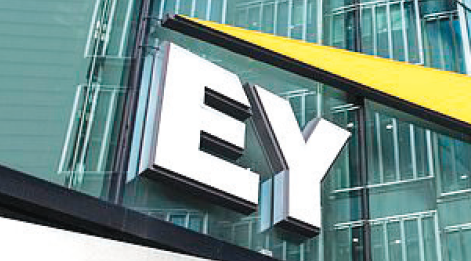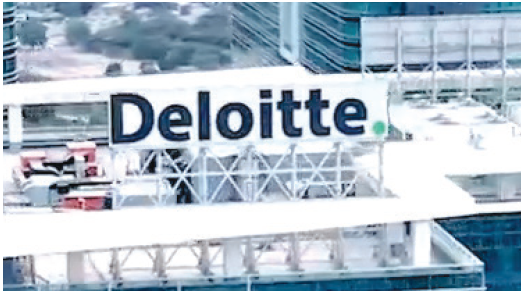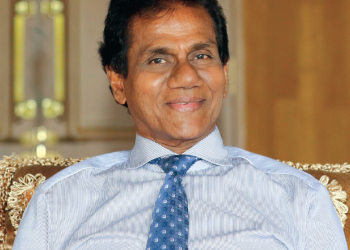They call it the secretive world of management consulting. It’s a power bloc that has gradually entered government and influenced policymaking. Once confined to their crucial role of checking company accounts, the big four audit firms worldwide have become formidable forces within State and private entities as consultants. In their newfound roles, their conduct has come under intense scrutiny. From deceitful behavior to sanctioning fraud and intimidation, bullying, and harassment of opponents, independent legislators and investigators call out the big four audit firms for violating ethics and conflict of interest conduct as they play the role of advisor to the government and the private sector.
Words: Jennifer Paldano Goonewardane

In an exposé about the latest corporate malpractice, the narrator starts with, “Whistleblowing isn’t for the fainthearted”. That sums up the problematic world of the newest brigade of conscience-driven individuals outing their employers’ misdemeanors. It is indeed a difficult decision to speak up. The price is heavy. Intense scrutiny, intimidation and job loss are some of the consequences. It’s a lone journey against powerful entities. They are entities in a collective whose influence spans the multinationals, the rich and famous, and the political authority. But it is to the courage of whistleblowers that the corporate cartels and their cosseted worlds come undone. That the diablos of corporate wrongs are smartly swathed in pinstripes and suits and sit in plush offices blinds everyone to their subversions. Although the 2008 global financial crisis showed the fickleness of international corporate stardom built on heritage and old-world entrepreneurial narratives that charmed the public into trust and adulation, the deceptions have continued.
Whistleblowers accuse KPMG, Ernst and Young, PricewaterhouseCoopers, and Deloitte, dubbed the Big Four, of malpractice and double-dealing-conflict-of-interest behavior. They are well-respected institutions of repute with histories that have their Judas moments. It should not come as a surprise when historical lessons on the spectacular downfall of some of the most celebrated institutions in banking with remarkable beginnings in burgeoning European economies, whose reputations have been built parallel to the economies that they served with dedication, revealed shocking details that would make people squirm in disbelief. They ran their masquerades in broad daylight, providing a springboard to clean the dirty money of drug cartels and mafias and aiding tax evasion. They did them not once but multiple times, paying fines to regulators and carrying on. Like the giants in banking, the problem with the big four audit companies boils down to governance issues and internal cultures that have put accountability and trust on the back burner, over-optimizing profits.
The Big Four and their changing roles
The Big Four employ 1.1 million people in around 150 countries. They are the financial auditors of almost all the major companies. With years of service, they enjoyed high regard, like the sentinels of integrity in their field, uncompromising and thorough in their work. As auditors to multinationals and the rich and famous, the Big Four earned the image of old-world accountancy firms. It allowed them to build an aura of credibility and trust. Traditionally, they audit accounts while advising companies and individuals on minimizing taxes. However, independent investigators point out that over time, as auditing accounts failed to rake in big money, the Big Four diversified into other areas. Today, around two-thirds of their revenue comes from consultancy services, advising on digitalization, sustainability and taxes. The latest revelations are from Australia.
In a wide-ranging portfolio of roles, the Big Four work with private companies and the government of Australia. Independent investigations have revealed that the Big Four do 97 percent of the audit work of the 300 listed companies in Australia. Between consulting
and auditing, they earned at least four billion dollars in four years. Those digging into their conduct, including parliamentarians and independent investigators, are finding a working arrangement that benefits everyone in the relationship. The fact that they are significant, influential and powerful, with tentacles into the corridors of power, makes whistleblowing challenging. However, their flagrancy in shunning corporate conduct had been a festering wound of internal and external discontent. However, much-needed regulatory action had hitherto met with a blank wall until one of the Big Four thought it was all right to work with the government while manipulating behind its back.

Conflict of interest
Their double-dealing involves advising clients on minimizing taxes while telling governments how to collect more. The most recent of those offences in Australia is dubbed the tax leak scandal; the scandal involving PwC was humongous. The PwC’s tax chief was working with the Treasury in 2015 to frame a strict new multinational tax law, a crucial role that demanded utmost confidentiality. He had to sign confidentiality agreements as part of his involvement; hence, there was no way the information would go out. At least, that was what everyone in government had assumed. However, he passed information on the proposed law designed to mitigate and crack down on multinational corporate tax avoidance to several colleagues, who passed it to their international clients to prepare them to sidestep the new laws. And this transgression, people allege, helped PwC earn $2.5 million. The Australian federal government has been a longstanding client of PwC. After the scandal, several government departments and private companies in Australia withdrew from working with PwC, while its CEO had to step down in January 2023. PwC had to sell its government advisory business for a token of $1.
Independent investigators are accusing the Australian Tax Office of being lenient with PwC, having settled the issue in March 2023, details of which have been kept under wraps, neither refusing to divulge the specifics nor the amount. The duo had struck the settlement deal before the full scale of the abuse came to light.
In response to the PwC scandal, in August 2023, the Australian government announced reforms and harsh penalties against those who promoted dodgy tax schemes. Its reputation is in tatters; PwC, however, did not face any repercussions for its conduct, nor will the new reforms be applied to the auditor retroactively. The fallout from the scandal is forcing the Australian government to consider initiating a federal police probe into the alleged violation by PwC.
When PwC commissioned an internal investigation into the scandal, the findings exposed corporate governance failures driven by power concentration at the top, with a lack of independent directors to provide perspective when there are excesses, while revenue-maximizing and capturing market leadership meant that it came at any cost of even rule-breaking, and lack of clearness on responsibilities and accountability among other factors had been prevalent in PwC. The PwC internal culture also propagated the practice of keeping negatives out while touting the good news only, which observers have said prevailed in bankrupt entities like Lehman Brothers, Enron and Silicon Valley Bank that preferred to close their eyes and ears to the reality.
Everywhere in a big way and above the law
The problem doesn’t end there. It gets worse with partners of these audit firms sitting on senior leadership teams in government departments in Australia. They encompass a wide range of areas, from defense to agriculture.
The working arrangement is a simple one, common to the four firms around the world. People allege that they scheme to get into government by underpricing their first assignment and, once inside, expanding their presence and influence through acquaintance. Once senior executives and partners permeate government agencies and hold vital positions, they make friends and build contacts with influential insiders, allowing them to get new assignments and extensions and renew existing contracts. Government officials cooperate with the consultants because one of the Big Four might likely be their meal ticket post-retirement. Upon retirement, the Big Four absorb former government employees into their consultants’ pool to re-enter their former workplaces. They describe it as a revolving door between consultants and government that keeps all sides employed. It also serves well for public servants to cooperate with the consultants who willingly endorse their department accounts even if they have questionable numbers.
That is what happened with KPMG in Australia. The company has earned millions of dollars over many years from its business relationship with the Australian defense establishment, with allegations of overpricing while targeting former defense staff to fill vacancies within it. Here’s the thing: first, KPMG enters the defense establishment as a consultant and, over time, increases its presence and work within it, collecting enormous fees, sometimes allegedly inflating the charges and proposing unwanted work that would extend its contract or renewing existing contracts. People accuse the defense establishment of colluding. The plot thickens when KPMG hires retired defense department personnel into its vacancies who then re-enter the government defense establishment as consultants representing KPMG. It is easy to see how that practice makes perfect business sense, making work easier as individuals who have held key positions in defense with sizeable influence within government advising their old working pals. Alarmingly, those investigating this link have found that over the last five years, nearly one hundred former defense staff had joined KPMG.
Independent investigators probing this nexus in Australia describe the Big Four’s role in government as an infestation. The danger was that the more they infiltrated government departments, the more powerful they became. At the behest of internal prodding, KPMG had artificially inflated the New South Wales State budget by billions of dollars in 2021. When one of its partners refused to do it, he was ostracized and humiliated. The NSW auditor-general declined to sign, eventually doing so following amending.
Another issue involves increasing fees that ended without the desired outcome. Payments and results weren’t analogous. In Australia, Deloitte received the contract to upgrade the MyGov website when it crashed during the height of the pandemic in 2020. Deloitte signed an agreement with the federal government’s digital transformation agency. A contract that started at $9.5 million ballooned to $47 million of taxpayer money. The auditor general criticized the deal as needing more assessment, with Deloitte changing daily consultancy fees above the recommended agency rates with the payments not linked to results. A subsequent government audit found gaps in the promised output.
Government infiltration
Australia accounts for being the country paying the highest for consultants. These consultants are advising the government on public policy and service delivery. The consultants from the Big Four are on senior leadership teams in every sector, from agriculture, finance and even federal police, while also acting as auditors for a wide range of government departments. They describe this infestation in Australia as the rise of the “consultocracy”. But why would the public sector increase its reliance on the Big Four? According to one whistleblower, it could be due to an ongoing loss of capability in the public service. The other is that the Big Four can provide a semblance of credibility for bad public policy decisions and a degree of plausibility for the bureaucrats implementing those policies. This practice has barred independent consultants from entering the process to provide impartial input, now replaced by shoddy acts of cleaning up for public consumption.
In Australia, State governments are increasingly relying on consultants to re-write the business plans of their departments. The colossal amounts spent on the Big Four show their invasion and influence on government departments. In the past decade, State and federal governments in Australia have spent at least ten billion dollars and the Department of Defense at least four billion dollars of taxpayer money on the Big Four. Apart from the trust deficit and the breaches, the hazy nature of the contracts they write brings to question the precise services they offer the government and where tax money gets channelled without the certainty of returns.
The NSW government has been a big culprit in wasting enormous amounts of public money on consultants, spending $504 million on the Big Four since 2018, although the price is suspected to be far more. A flawed system of keeping records does not help reveal the numbers or the amount spent on consultants, allege those investigating.

Conflict of interest
Their double-dealing involves advising clients on minimizing taxes while telling governments how to collect more. The most recent of those offences in Australia is dubbed the tax leak scandal; the scandal involving PwC was humongous. The PwC’s tax chief was working with the Treasury in 2015 to frame a strict new multinational tax law, a crucial role that demanded utmost confidentiality. He had to sign confidentiality agreements as part of his involvement; hence, there was no way the information would go out. At least, that was what everyone in government had assumed. However, he passed information on the proposed law designed to mitigate and crack down on multinational corporate tax avoidance to several colleagues, who passed it to their international clients to prepare them to sidestep the new laws. And this transgression, people allege, helped PwC earn $2.5 million. The Australian federal government has been a longstanding client of PwC. After the scandal, several government departments and private companies in Australia withdrew from working with PwC, while its CEO had to step down in January 2023. PwC had to sell its government advisory business for a token of $1.
Independent investigators are accusing the Australian Tax Office of being lenient with PwC, having settled the issue in March 2023, details of which have been kept under wraps, neither refusing to divulge the specifics nor the amount. The duo had struck the settlement deal before the full scale of the abuse came to light.
In response to the PwC scandal, in August 2023, the Australian government announced reforms and harsh penalties against those who promoted dodgy tax schemes. Its reputation is in tatters; PwC, however, did not face any repercussions for its conduct, nor will the new reforms be applied to the auditor retroactively. The fallout from the scandal is forcing the Australian government to consider initiating a federal police probe into the alleged violation by PwC.
When PwC commissioned an internal investigation into the scandal, the findings exposed corporate governance failures driven by power concentration at the top, with a lack of independent directors to provide perspective when there are excesses, while revenue-maximizing and capturing market leadership meant that it came at any cost of even rule-breaking, and lack of clearness on responsibilities and accountability among other factors had been prevalent in PwC. The PwC internal culture also propagated the practice of keeping negatives out while touting the good news only, which observers have said prevailed in bankrupt entities like Lehman Brothers, Enron and Silicon Valley Bank that preferred to close their eyes and ears to the reality.
Everywhere in a big way and above the law
The problem doesn’t end there. It gets worse with partners of these audit firms sitting on senior leadership teams in government departments in Australia. They encompass a wide range of areas, from defense to agriculture.
The working arrangement is a simple one, common to the four firms around the world. People allege that they scheme to get into government by underpricing their first assignment and, once inside, expanding their presence and influence through acquaintance. Once senior executives and partners permeate government agencies and hold vital positions, they make friends and build contacts with influential insiders, allowing them to get new assignments and extensions and renew existing contracts. Government officials cooperate with the consultants because one of the Big Four might likely be their meal ticket post-retirement. Upon retirement, the Big Four absorb former government employees into their consultants’ pool to re-enter their former workplaces. They describe it as a revolving door between consultants and government that keeps all sides employed. It also serves well for public servants to cooperate with the consultants who willingly endorse their department accounts even if they have questionable numbers.
That is what happened with KPMG in Australia. The company has earned millions of dollars over many years from its business relationship with the Australian defense establishment, with allegations of overpricing while targeting former defense staff to fill vacancies within it. Here’s the thing: first, KPMG enters the defense establishment as a consultant and, over time, increases its presence and work within it, collecting enormous fees, sometimes allegedly inflating the charges and proposing unwanted work that would extend its contract or renewing existing contracts. People accuse the defense establishment of colluding. The plot thickens when KPMG hires retired defense department personnel into its vacancies who then re-enter the government defense establishment as consultants representing KPMG. It is easy to see how that practice makes perfect business sense, making work easier as individuals who have held key positions in defense with sizeable influence within government advising their old working pals. Alarmingly, those investigating this link have found that over the last five years, nearly one hundred former defense staff had joined KPMG.
Independent investigators probing this nexus in Australia describe the Big Four’s role in government as an infestation. The danger was that the more they infiltrated government departments, the more powerful they became. At the behest of internal prodding, KPMG had artificially inflated the New South Wales State budget by billions of dollars in 2021. When one of its partners refused to do it, he was ostracized and humiliated. The NSW auditor-general declined to sign, eventually doing so following amending.
Another issue involves increasing fees that ended without the desired outcome. Payments and results weren’t analogous. In Australia, Deloitte received the contract to upgrade the MyGov website when it crashed during the height of the pandemic in 2020. Deloitte signed an agreement with the federal government’s digital transformation agency. A contract that started at $9.5 million ballooned to $47 million of taxpayer money. The auditor general criticized the deal as needing more assessment, with Deloitte changing daily consultancy fees above the recommended agency rates with the payments not linked to results. A subsequent government audit found gaps in the promised output.
Government infiltration
Australia accounts for being the country paying the highest for consultants. These consultants are advising the government on public policy and service delivery. The consultants from the Big Four are on senior leadership teams in every sector, from agriculture, finance and even federal police, while also acting as auditors for a wide range of government departments. They describe this infestation in Australia as the rise of the “consultocracy”. But why would the public sector increase its reliance on the Big Four? According to one whistleblower, it could be due to an ongoing loss of capability in the public service. The other is that the Big Four can provide a semblance of credibility for bad public policy decisions and a degree of plausibility for the bureaucrats implementing those policies. This practice has barred independent consultants from entering the process to provide impartial input, now replaced by shoddy acts of cleaning up for public consumption.
In Australia, State governments are increasingly relying on consultants to re-write the business plans of their departments. The colossal amounts spent on the Big Four show their invasion and influence on government departments. In the past decade, State and federal governments in Australia have spent at least ten billion dollars and the Department of Defense at least four billion dollars of taxpayer money on the Big Four. Apart from the trust deficit and the breaches, the hazy nature of the contracts they write brings to question the precise services they offer the government and where tax money gets channelled without the certainty of returns.
The NSW government has been a big culprit in wasting enormous amounts of public money on consultants, spending $504 million on the Big Four since 2018, although the price is suspected to be far more. A flawed system of keeping records does not help reveal the numbers or the amount spent on consultants, allege those investigating.
Selective hearing and dubious numbers
Everyone wants a less critical auditor. Professional skepticism is a problem. The auditor’s job is to endorse the accounts without a fuss. At least, that’s what every client desires. Government departments in Australia have been up to the same. Government officials want to hear what they want, and who wouldn’t do that if it brings in more work, especially consultancies? Fundamentally, the relationship works in tandem, one buttressing the interests of the other. The government hires auditors and consultants to rationalize the answers they want to hear and conclusions they have already arrived at but receive a semblance of credibility from their hired hands.
On their part, the Big Four cooperate and discourage their employees from criticizing their clients. Witnesses allege that repeated attempts at alerting executives to fraud in government department accounts had fallen on deaf ears, and concerned employees would be eventually warned by the management not to speak and to ignore those deviations. Trying to play god puts much at risk in the real world, including losing the auditing contract and future consultancy assignments. And it’s the same with the private companies they work for. Many big companies have been allowed to fudge their balance sheets with fingers pointing to the private auditors. Inflated accounts and manipulating accounting transactions to cover up losses have gone unnoticed under the scrutiny of these big audit firms. They have continuously approved their cooked-up books by ignoring corporate fraud on a massive scale. Rather than raise objections and lose favor, these audit firms toe the line. Maintaining clients in an intensely competitive environment means telling them what they want to hear. For most big companies, showing good numbers in the bottom line is vital to satisfy shareholders, but when the charade eventually stops, too many people go down with the company.
What happened in 2008 is a testament to their inaction, an act that set the stage for a dangerous consequence of events resulting in a global financial crisis. EY facilitated a massive accounting fraud at Lehman Brothers by removing tens of billions of dollars of debt from the investment banker’s balance sheet to make it appear less in debt. Its subsequent bankruptcy filing in September 2008 triggered the global financial crisis. To help Lehman Brothers cover its fraud, EY had levied a fee of $150 million between 2001 and 2008. But when EY had to settle a subsequent New York lawsuit for helping Lehman Brothers deceive investors, the NY Auditor General concluded that EY had provided cover for its client by helping to hide material information, and thereby, its action amounted to harming the investing public, the economy and the country. That statement is tantamount to accusing EY of treason, betraying an entire nation and plunging it into dire straits in return for big profits. This action had a dangerous cumulative effect globally. Investors of various proportions are sometimes robbed of their life’s savings and retirement income by such callousness. The list of such corporate accounting frauds aided and abetted by the Big Four stretches through the continents, leading to collapses and investor betrayals.
What happened in 2008 is a testament to their inaction, an act that set the stage for a dangerous consequence of events resulting in a global financial crisis. EY facilitated a massive accounting fraud at Lehman Brothers by removing tens of billions of dollars of debt from the investment banker’s balance sheet to make it appear less in debt. Its subsequent bankruptcy filing in September 2008 triggered the global financial crisis. To help Lehman Brothers cover its fraud, EY had levied a fee of $150 million between 2001 and 2008. But when EY had to settle a subsequent New York lawsuit for helping Lehman Brothers deceive investors, the NY Auditor General concluded that EY had provided cover for its client by helping to hide material information, and thereby, its action amounted to harming the investing public, the economy and the country. That statement is tantamount to accusing EY of treason, betraying an entire nation and plunging it into dire straits in return for big profits. This action had a dangerous cumulative effect globally. Investors of various proportions are sometimes robbed of their life’s savings and retirement income by such callousness. The list of such corporate accounting frauds aided and abetted by the Big Four stretches through the continents, leading to collapses and investor betrayals.
The problem is that the institutions assigned to check on the independence of these audit firms were employing people who had formerly worked in one of the big four audit firms. In that case, can anyone expect fair play? Will they enforce any regulation on the audit firms who were once their employer? The Australian Tax Office faces a similar problem. Consultants fill the principal revenue collecting agency’s upper tiers, some still receiving payments from their former employers while earning from taxpayer-funded money. The tax commissioner, Chris Jordan, had spent ten years as chairman of KPMG New South Wales, while his second in command had also come from KPMG. At the same time, two other managers had joined from EY and three of its top IT personnel from tech consultancy Accenture, two of whom still hold shares in their former company, which has won $1.4 billion worth of work from the tax office over the past decade.
Overlapping interests
It’s a complex position the Big Four occupy. On the surface, everyone relies on them to act with trust and independence in their dealings with the government and the private sector. But their roles collide as they seek to leverage their relationship with the government and the private sector to increase revenue amid intense competition. Over time, as their businesses have spun into lucrative enterprises, their dealings have become increasingly secretive and ambiguous. Their entry into government departments as consultants and heads has made them powerful, with an increasing say in policymaking and access to information. They have close allies inside government and have the wherewithal to influence politics and legislation. They also represent the interests of the private sector. The problem is that compromising ethics and professional standards at one end of the business poses the risk of pervasive practices of the same across all other areas of work and processes and becomes normalized. But are the latest revelations shocking? The nexus between political authority and the business class is a match made for good. They make complementary bedfellows, enriching each other’s domains through corruption, propagated with a fierceness that only their economic power can sustain. Their economic power lends them a voice to lobby against reforms to influence legislation and public view. Audit firms and their cohort corporates are also a significant source of political funding. Ultimately, their run with the hare and hunt with the hounds practice may not hurt any of them, but someone has to take the fall, and it’s the taxpayers.
What of Sri Lanka?
If this behavior is pervasive and a global malaise, Sri Lanka wouldn’t be an exception. A little digging reveals that this practice is the norm rather than an exception everywhere. There is a conflict of interest when audit firm partners hold public office. They have power in both instances. As heads of government departments, they can favor the corporate clients they serve through their audit firms to grant contracts, tenders and access. They also can influence corporations to choose their audit firms in exchange for government contracts and business deals. Audit firms can spread their tentacles to other areas, such as trade chambers, where their members could be potential clients. That infiltration could include influencing policymaking and lobbying legislators to moot agendas favorable to their clients within the chambers.
The extent to which these people of influence can enrich themselves and their clients depends on the government entity they lead. As referred to in the case of Australia, appointing former partners from the Big Four into lead positions in government doesn’t guarantee independent conduct, detached from their former employers. They will likely root for their former employers through consultancies and auditing assignments. Even if some are political appointments and are most likely to become casualties of political change, nothing can stop them from leveraging their positions to make a good profit. While in the developed world, the Big Four have been acting with impunity for a long time, their governments at some point bow down to public and political pressure to enact legislation to deter future breaches.
In Sri Lanka, the story is different. While we have solid accounting strictures per international standards, violations have prevailed. A lack of public awareness on such issues gives them the space to operate without hindrance. What could be at stake is taxpayer money in a country reeling from an emptied coffer. And whistleblowing is most likely to fall on deaf ears.







